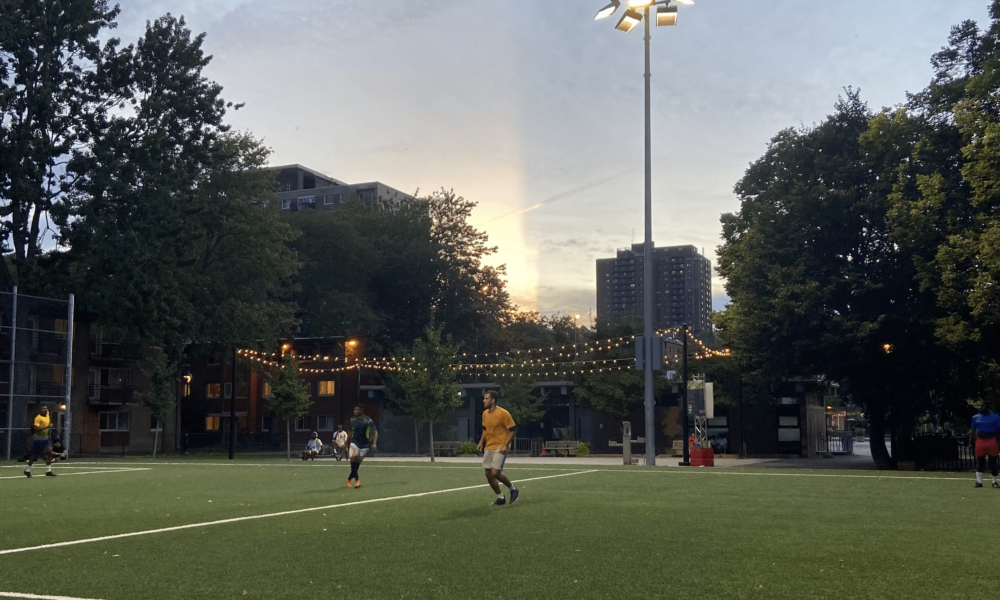From the moment my parents first put me into house league soccer at five, I was hooked. Growing up, I never thought about how my relationship with the sport would change. Girls my age seemed to follow a set path from elite youth development teams to university soccer. This path became more than a set of destinations to checkmark: It was an identity.
I committed to McGill for soccer in the fall of my grade 12 year. My time playing for McGill was anxiety-inducing. I loved practicing and the thrill of game days but did not know how to stand up for myself against coaches who did not treat me with respect. In spite of this, my love for soccer only grew. I became a superfan of Liverpool Football Club; I was as obsessed with watching and reading about soccer as playing. I became even more determined to succeed, to recreate the happiness I used to feel every time my foot touched the ball.
On my way to practice, I noticed men on the soccer fields near my house playing pick-up. I envied the fun they were having. Here I was, playing for a varsity team, yet the team brought me no joy. Although there were never any women there, I mulled over the possibility of approaching and asking to join in a game. After a particularly negative practice, I impulsively decided to go and play, promising myself I would play for an hour at most. I ended up playing for three.
On the lighter days of the gruelling McGill pre-season, I began to play additional hours of pick-up soccer. The environment was a stark contrast to that of the McGill women’s soccer team. Most players were young men from North or West Africa, and the language of choice on the field was French. My years of French immersion came in handy, and my French improved rapidly. I was almost always the only woman and one of the few who had grown up in Canada.
When I was abruptly cut from McGill soccer at the start of my third year, I was devastated. Yet, this moment was the catalyst for rediscovering joy in my sport. Instead of crying to the coaches, I played pick-up soccer for two hours.
For the rest of the semester, I would go to the field and play from whenever my last class of the day ended until 10 p.m. I felt totally lost, but I found solace in playing. Although my body ached from playing so intensely every day, I couldn’t resist the pull of the field.
Certainly, some days were difficult. When my team would lose and have to wait on the sidelines for long stretches of time, I would question myself and what I was doing. Being the only woman on the field also wasn’t easy. Those who hadn’t seen me play would avoid being on my team and blame me if we lost. At first, I felt like an outsider, but I slowly gained everyone’s respect and affection, as they did mine.
Eventually, I found a futsal team, Underdogs FC, that introduced me to the world of Quebec women’s soccer outside of the university sphere. Last weekend, we even won the Coupe de Québec, a trophy which eluded us by one goal in last year’s finals. But this year, we won against our arch-rivals, and I scored the winning goal in the last minute.
While my journey has not been conventional, I would not change it for the world. It was painful to see the scores of Martlet soccer’s matches. Yet if I was still on that team, I would never have found this wonderful world, full of people very different from those at McGill. I would have never played futsal, or for Simcoe County Rovers, and I certainly would not have had the opportunity to be a Sports Editor at The Tribune. Now, I know how to set boundaries with coaches and recognize harmful behaviour. I know that mistreatment doesn’t have anything to do with how good you are: It is a failure of the individuals in power. I know that no journey is linear: There will always, always be avenues to play your sport if you just look hard enough. At the heart of all sports, there must be joy and respect. More than anything, I am grateful for the spaces where I have rediscovered my joy.









